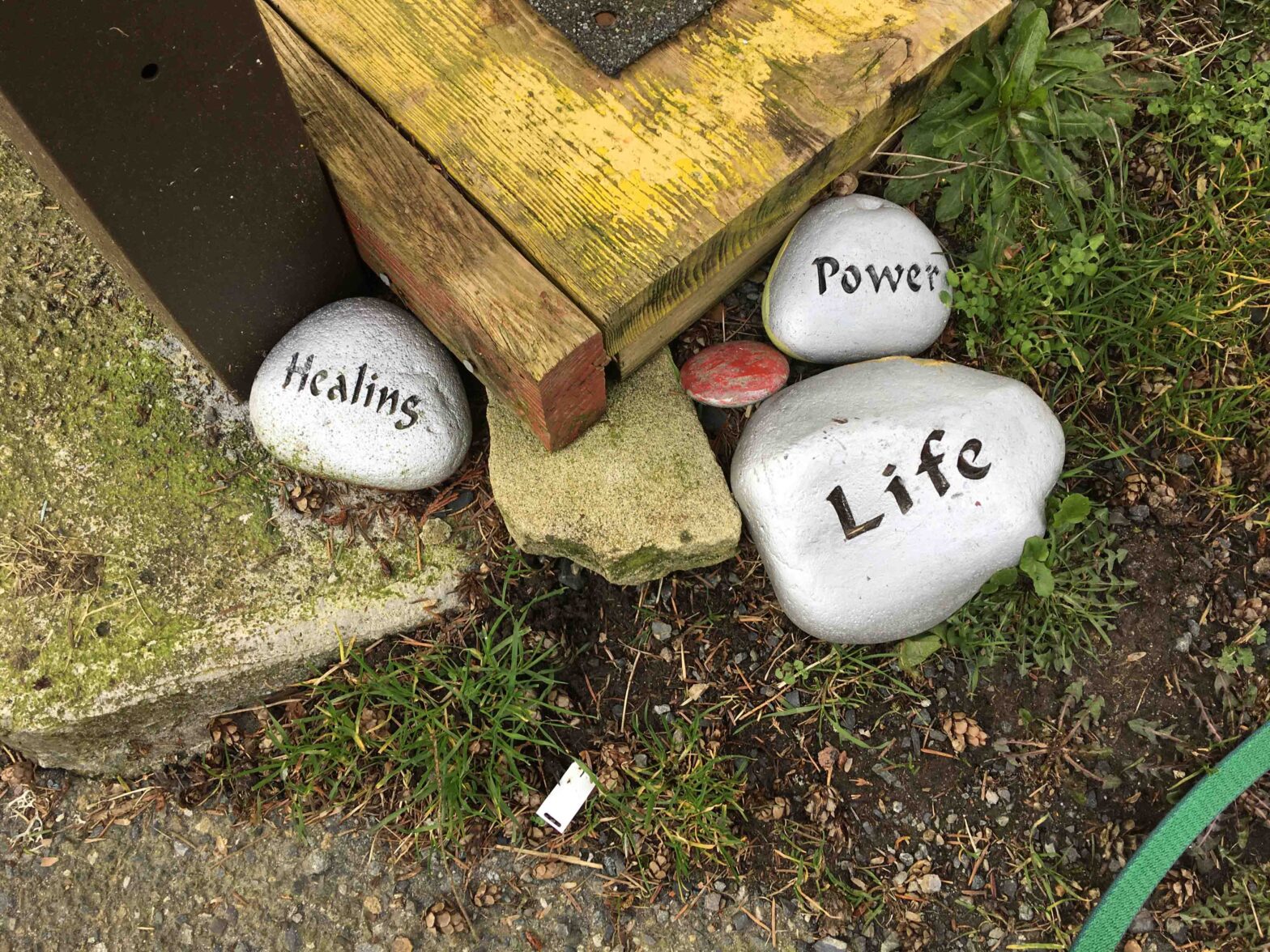Last Monday I felt overwhelmed by a new health diagnosis. I sent my accountability partner one intention for the week: “To get by.” I cried. I journaled. And I reminded myself that this, too, shall pass, like every other physical challenge I’ve ever confronted. Three days later, I updated her with, “Still standing. Here are all the things I accomplished this week.” By removing every expectation except self-care, I was able to shrink the feeling of extreme stress. Doing so allowed me to inch forward until I felt closer to normal. Below are some strategies you can use to overcome overwhelm.

What is Overwhelm?
Someone who is overwhelmed feels incapable of doing anything. They become “deer in the headlights.” Overwhelmed is the desire to bury your head in the sand. Draw the covers over your head and never come out. Watch silly cat videos because you have no bandwidth for anything harder. It comes from feeling like we have to do EVERYTHING. RIGHT NOW. PERFECTLY. Says who?
What if we gave up the need to control everything in our lives?
Brene Brown, researcher and author of many wonderful books on shame and vulnerability, writes that there is a huge difference between overwhelm and stress. While overwhelm shuts us down, we can usually handle stress. Stress manifests itself as an internal or external pressure to do something. Feeling overwhelmed means we are incapable of doing anything. Too much stress–without effective ways of handling it–often leads to overwhelm.
What are some ways you can prevent overwhelm?

Know Thyself
Joan Baez is quoted as saying that action is the antidote to despair. Likewise with overwhelm. By taking one tiny step forward, we prevent overwhelm from stopping us in our tracks. In December 2021, I discussed the power of doing one thing to prevent overwhelm.
Another useful strategy is to identify your values, identity, strengths, and desires and review them often when faced with tough decisions. Unsure what you value? Try this worksheet.
An assessment you may find helpful is the Big Five Personality Traits. Unlike other personality tests such as the Myers Briggs Type Indicator, this one is backed by modern research and data analysis and is considered more accurate than older tests.
It uses 100 questions to assess your scores in five areas: Openness, Conscientiousness, Extraversion, Agreeableness, and Neuroticism. (A helpful way to remember them is with the acronym OCEAN). You can take the free assessment here.

An example of how knowing myself better helps me reduce overwhelm: I test as introverted and high in agreeableness. I loathe confrontation. By working hard to develop skills around sticking up for myself, I can prevent future problems that might stem from hot debates I know I can never win. Similarly, knowing that my husband is an extrovert, I can choose to join him at smaller social engagements to prevent overwhelm.
TRY THIS: After completing the MBTI or Personality Traits assessment, think about how knowing more about your deep-rooted personality traits might help you make choices that support you.
Overcome Overwhelm: A Mile Wide, an Inch Deep
My husband asked if I’d heard the saying that fear is a”mile wide and an inch deep.” Edgar Nye first coined the phrase, but he was talking about the Platte River. It applies to overwhelm, as well. After my recent health diagnosis on Monday, I shut down for most of the afternoon.
Fortunately, I had a hike with a friend planned for the next morning. Nothing provides balm for my soul quite like a visit to the mountains.

Following that hike, I faced another medical appointment and classes I wouldn’t have had the bandwidth to face the day before. Did I move through the five stages of grief (ending at acceptance) that quickly? No.
I reframed my story, another technique I wrote about on Jan. 17, 2022. I saw the possible benefits of the new diagnosis as potentially curing another problem I’ve faced for two years. But I had to come to terms with the new information to move forward.
TRY THIS: Think of a situation where you felt shut down. What single step might you take, next time, to pull yourself out of it?
Checklist to Overcome Overwhelm
Once you take any tiny step, you build forward momentum. You overcome overwhelm with action. You won’t drown in an inch of water unless you believe with all your heart that you will. Likewise, if you have confidence that you will find a way forward, you will. What you focus on grows. If you focus on the negative, you will attract more negatives. If you seek the positives, you will find more to support you.
Here are more ideas that might help.
- Identify what, specifically, feels overwhelming right now. Journal about it.
- Break big goals into smaller steps. Identify ONE and only one thing to do today. If you finish that one, you might find yourself naturally doing another but do not put pressure on yourself.
- Differentiate between urgent and important tasks. Make sure you are doing the most important thing today.
- Establish a routine to create order and reduce stress.
- Delegate tasks to others so you don’t have to do everything yourself. Learn how to say no.
- Move. Whether in the mountains or the city, moving will remind you of the importance of taking action.
- Create a list of wins, ANYTHING that shows forward progress.

Overcome Overwhelm: A Few Final Thoughts
No matter what your situation is, as long as you have hope that things will improve, you can overcome overwhelm and move forward. Here are some takeaways for you to try.
Celebrate Small Wins
By taking tiny steps, you build forward momentum. One day that may mean sitting outside in the backyard watching the birds. Getting out of bed to feed your pets. Putting the Twinkies back on the shelf and buying a package of Rotisserie chicken instead. But each of those is a win. And no win is too small.
Acknowledge that Small Wins Lead to Big Wins
I use this example all. the. time. What took me a full 2 weeks in July 2021 – coming up with a blog post to launch into the universe — has become a routine process I do consistently, every week. That one blog post has grown to an entire body – 127 to be exact – of “get unstuck” wisdom I gladly share with my clients and readers. And I refer back to it often as my “Owner’s Manual.”

Use Self-reflection to Understand What’s Causing the Feeling
Recognize your progress, no matter how small. Keep taking steps forward, a little at a time. You never know where they might lead you. Record your steps. Make note of what you still have. Write down what you’re grateful for. And get curious about what caused your feelings so you can change the outcome next time.
If you found this article helpful, please share a comment. I love to hear from readers.


Hi – Your post resonated with me as I frequently feel overwhelmed. I’m saving this post in a separate folder so I can refer back to it. The Big Five Personality Traits assessment was interesting. I learned something. I too am a life-longer learner and find your
research extremely helpful. Thank you Courtenay for sharing your journey.
Hey Anna, great to see you posting here. Since we chat in a group outside the blog I’m more than happy to help you troubleshoot strategies, just let me know.
Glad the Big Five was helpful. Love to have a conversation with you about it sometime. I’ll bring it up next CG. Maybe it’s something all six of us would find value in for a future meeting. See, you’ve generated a new idea in me! Appreciate the post. Keep writing, movement forward — no matter how tiny — helps.
Thanks Courtenay for sharing your feelings & emotions. Love all the great tips & tools of this article. Thanks again.💞
Thank YOU, Silvie Marie, for your dedicated readership and support of the blog. I hope the tips help others! Read on, hike on, shoot on!
Hi Court- thank you for such an honest reflection on what you are feeling and going through. It is tough and I appreciate your honesty. Sometimes just saying it is ok to feel what I feel is good. Wishing you the best and
as always grateful for your blogs. I always learn something. k
What a lovely comment, Kristy! Thanks for that. I always love hearing from readers and glad it resonated with you enough to post. Thanks for reading and sharing!